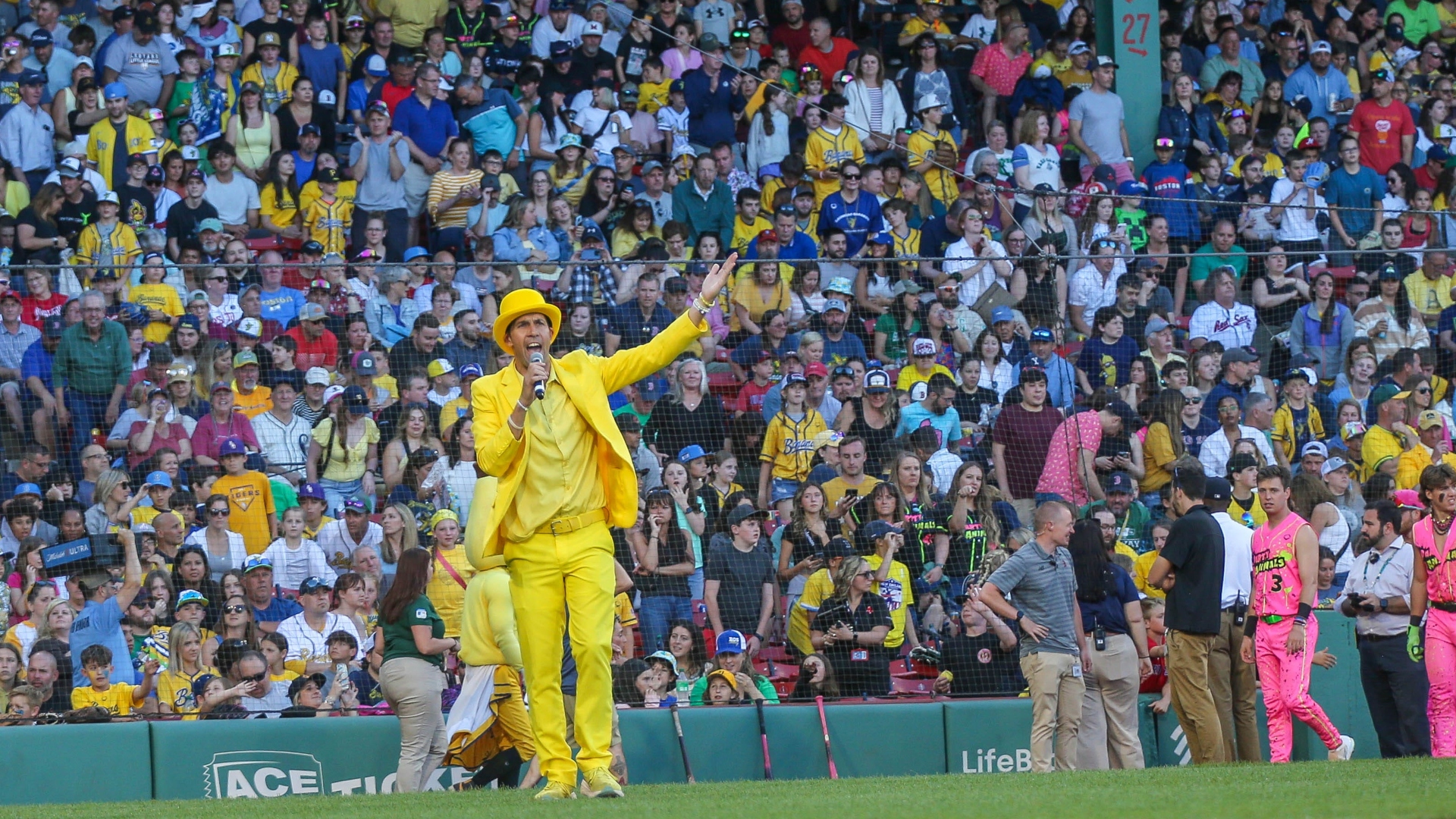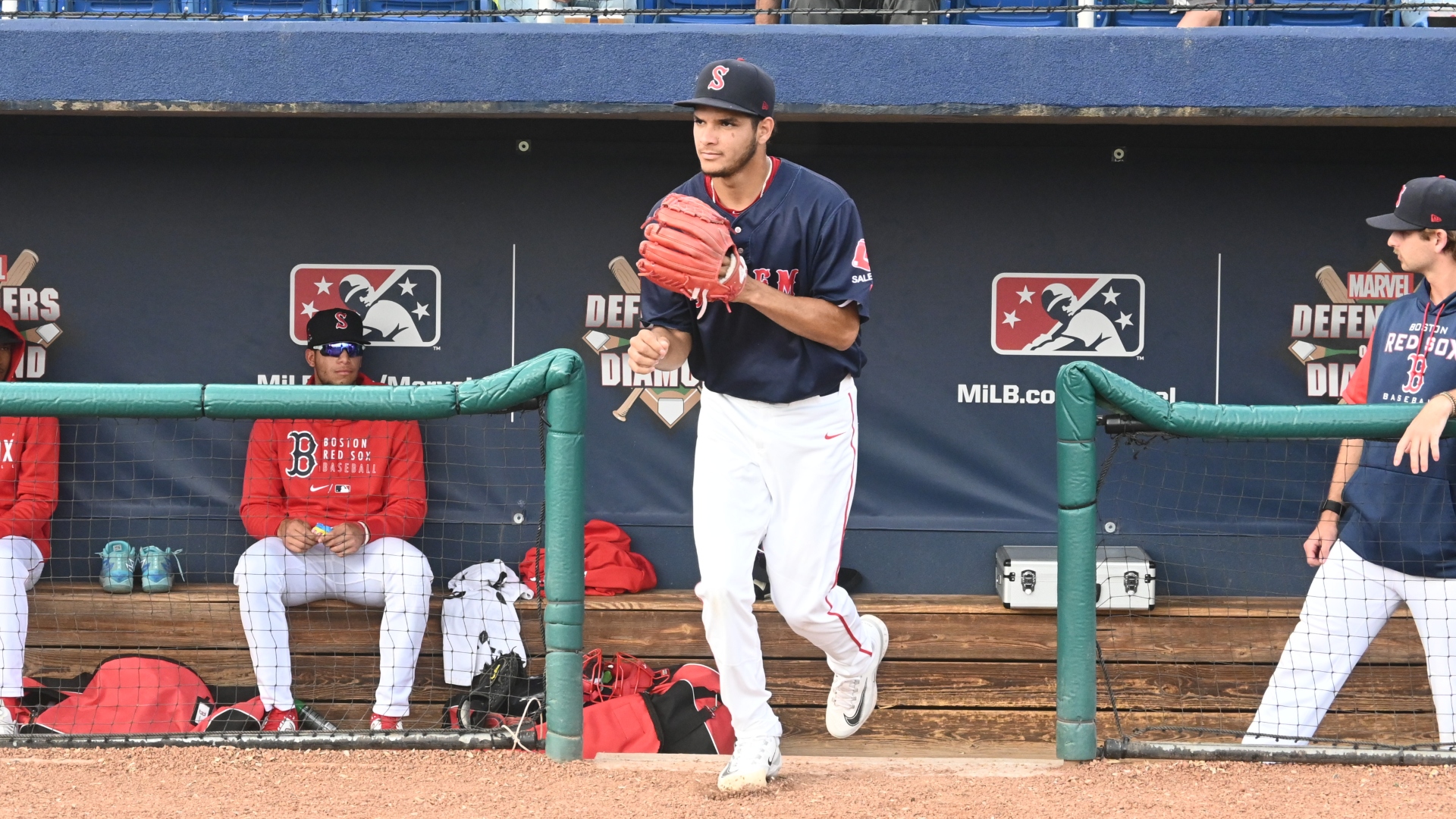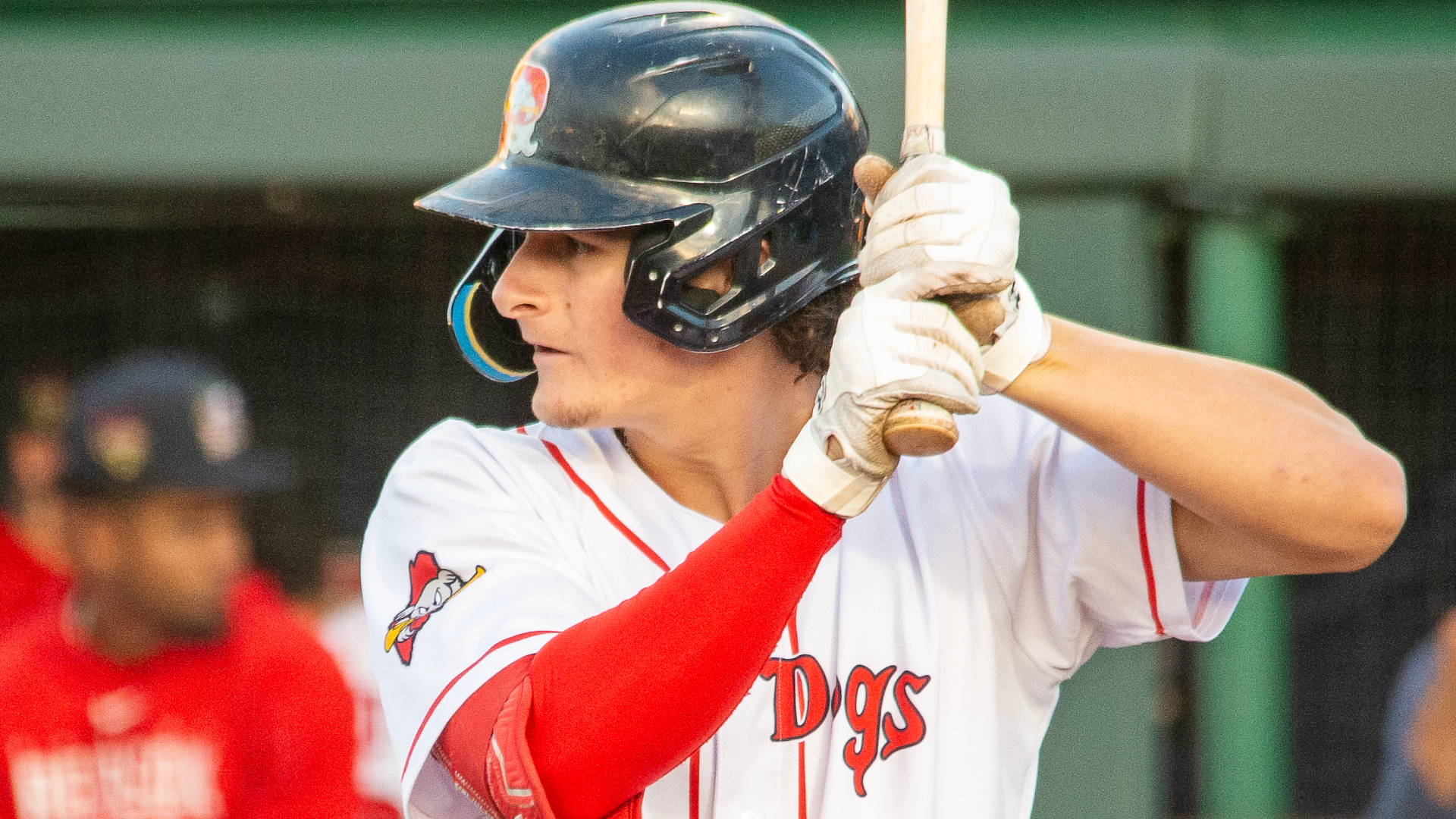Life under the microscope can burn you sometimes. So can life as the No. 2 prospect in the Red Sox organization.
But just like the game of baseball, life under the microscope is all about adjustments. And adjusting is an art Lars Anderson is learning to perfect.
"For my whole career, I’ve kind of rejected that label that’s been put on me," Anderson said. "I’ve kind of rebelled against it. And if you’re rebelling against something – kids to parents, nations against nations, whatever – when you’re rebelling against something, there’s going to be tension and you’re going to be uncomfortable and you probably aren’t going to be that happy."
First, there was the adjustment to the label itself.
Shortly after the Red Sox selected the Oakland, Calif., native in the 18th round of the 2006 MLB draft, the label became “First Baseman of the Future” — this, after Anderson had spent a mere two seasons playing Single-A and Double-A ball.
So after the adjustment to the label became the adjustment to the adjustment.
"It’s about saying, 'OK, I’m going to have this label, and [accepting it is] better than playing poorly so I don’t have it,'" Anderson said. "It’s about accepting what’s being said. I don’t have to love it, but it’s what’s there, and then getting back to the task at hand."
The task at hand, of course, is becoming the first baseman of the future.
They’re cyclical, these mind games you must play when you’re in the midst of your third year as a Red Sox prospect. And learning to conquer mind games keeps you in the game just as much as conquering the game itself.
Anderson was 18 when that fateful phone call came from Theo Epstein. He didn’t know what to expect; in fact, he expected to be headed to college in the fall instead of in Greenville, S.C., playing for Gabe Kapler in Single-A ball.
"There was some talk about where I’d be drafted, and I didn’t go in those rounds people were saying," Anderson said. "I remember feeling sort of relieved, like, ‘OK, I’m going to college and that’s what happening,’ and then the Red Sox pick me, and I was like, 'oh, that’s interesting.'"
The Red Sox told Anderson they’d keep an eye on him for the summer. As each week went by, Anderson understood more and more that signing with Boston made more sense for him than college – so that’s what he did, on Aug. 8 of that year.
The Messiah of Red Sox Nation was born.
Anderson tore it up during his first two years in the minors, living up to that label that was quickly becoming synonymous with the name on the back of his jersey. In 2007, he played 124 games with the Greenville Drive in the South Atlantic League and hit .288 with 10 homers and 69 RBIs, with a slugging percentage of .443. He played 10 games with Lancaster in the California League to end 2007, then played 77 more there in 2008, hitting .317 with 13 homers and 50 RBIs before being promoted to Portland. Anderson fared just as well there, hitting .316 over the final 41 games of the season.
Then, in 2009, trouble hit. The label, for the first time, was tested.
It wasn’t an easy year for Anderson. For the first time in his short minor league career, he struggled, hitting .233 in 119 games with just nine homers, a number he has already matched through the first three months of this season.
It was yet another adjustment – this time, though, it was an adjustment to uncharted territory.
"When you move to a different place, everything’s new. That’s tough," Anderson said. "You want to be successful at what you do, I want to be successful at what I do, but this game takes a lot out of you. The hardest part is to say, OK, I got out that at-bat, but still take something from it and just move on and leave that where it should be, which is in the past, and not really dwell on it."
The concept sounds easy. It isn’t.
"It sounds simple, but when you’re 0-for-20 and you go up there and strike out, it’s hard to come out there on the field and just be totally there," Anderson said.
This year is a new year. Anderson is one year older, he knows what it’s like to struggle, and he knows it’s inevitable. Now, he also knows that you can rebound.
Anderson began this season with Double-A, and in 17 games, he went 22-for-62 (.355) with a .408 on-base percentage and a .677 slugging percentage with a 1.086 OPS. He seemed to have forgotten about a forgettable 2009, enough so for the Red Sox to decide he was ready for Triple-A.
The difference between the 2009 Anderson and the 2010 Anderson was not just a guy who saw the ball better and got more hits; it was a guy who was older, more mature, ready for both the physical and psychological grind that accompanies the next level.
"From what I heard last year, what was a big adjustment for him was doing some soul searching," said Pawtucket hitting coach Gerald Perry. "If you really believe in yourself, you don’t mind the expectations everybody puts on you because you probably expect more out of yourself than other people do."
Anderson has always expected to have success; he’s just never been naïve enough to expect it was going to be easy, particularly when faced with 100-mph fastballs. Sometimes, he’ll hit them; sometimes he won’t. Sometimes, hitting them just comes with experience.
"I was 21 last year; I’m 22 now. That’s a lot," Anderson said. "Your life changes outside of baseball; you get different perspectives and different tastes in music, fashion, social responsibilities. Your perception of the world [changes]. The baseball thing, a lot of it stays the same. A lot of it is trying to keep it as simple as possible."
Ignorance is bliss when you’re playing six or seven games per week. A lot of the time, ignorance means letting the baseball stuff stay on the field and finding a way to get away from it all in the precious little time you get away – and Anderson has found a way.
Sometimes, he plays his guitar, or he reads, or he listens to music (Phoenix, LCD Soundsystem and MGMT lately – "but not the new album before the game, it’s a little too psychedelic"). When he’s at home, he continues to get comfortable in yet another new place.
"I just moved into this new place in Providence – well, it’s not new, it was probably built in 1850, but it’s new for me," he said. "I’m trying to get my bearings around [Pawtucket], so I’ve been walking through the city and checking out different college campuses and seeing different sites. It’s a cool spot."
Anderson is fortunate. Too many players have been victimized by over-thinking, by an inability to leave the game where it belongs. He’s never had that problem, even during the dark days in 2009.
"It takes a lot for me to be affected off the field," he said. "Once I leave the field, unless I’m having a really hard time, it’ll stay with me, but I have other interests outside of baseball and I try to get into those."
It hasn’t been the easiest of rides thus far during his 46 games in Triple-A, where he’s hitting .197 (as of June 22) with an on-base percentage of .308. But it comes with the territory, something he’s certainly adjusting to.
"Let’s just take it one day at a time right now and let him go through some of the growing stages of playing baseball, because he’s so young," Perry said. "There’s no rush or anything, but just continue to make adjustments from day to day."
Anderson’s patience with his progress seems to be paying off on the field, as well, in terms of his approach at the plate.
"Him being as young as he is, he’s a pretty patient hitter, "said Pawtucket shortstop Gil Velasquez. "To be successful in the bigs, you have to be a patient hitter."
But just because he’s patient doesn’t mean he’s not ambitious.
"He’s the only hitter I’ve ever heard say he should have had two home runs in one at-bat," Velasquez added.
Potential can be a dangerous thing for anyone, not just baseball players. Potential means expectations are higher and often more difficult to meet; it means there’s more that you can achieve but you haven’t quite gotten there.
It also means there’s always more room to grow, and that’s never dangerous.
"When I first started, everything was so fresh and so new; I didn’t really have a grasp on everything that was working, which was almost better, because ignorance is bliss," Anderson said. "I had a more narrow view of what’s going on in the present. When you play, it’s almost inevitable that everything else kind of seeps in and has the ability to distract you. I think I’m learning how to deal with that and how to get back to that narrow view of what I need to do when I’m at the ballpark."
Every day in Triple-A is a challenge, but still – if the Red Sox came calling tomorrow, Anderson would be ready. And confidence, more than anything, is perhaps the most important quality for someone living under the microscope to maintain.
"It’s easy for me to say that I’m ready, but I feel more ready than I have in the last few years," he said. "I feel more mentally … I don’t know if stable is the right word, but I feel more together. I feel like I could handle it. But, you know, I’m happy being where I am, too. I’m really happy to be where I’m at, but that’s the goal. Some guys have been in Triple-A for 10 years, and I’ve been in it for six weeks. It’s all been new. This level is challenging, so I’m happy with it."
And until he’s at Fenway Park, standing at the bag currently occupied by Kevin Youkilis, Anderson will just keep doing what he’s been doing all along.
He’ll adjust.



